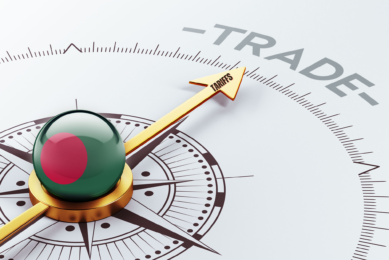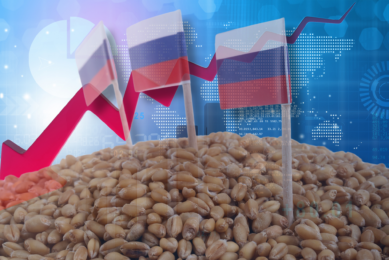Cartagena Protocol – effect on trade and maize price
There are diverging views among people, industries and Governments of the actual or potential risks and benefits that genetically modified organisms (GMOs) and products thereof can bring about.
For developing countries in particular, agro-biotechnology remains a challenging phenomenon. These countries could be the main beneficiaries of it, but they could also be the main losers if agro-biotechnology negatively affects biodiversity or if patented biotechnology makes access to seeds more difficult or changes the structure of food production systems. At the multilateral trade level, rules on transboundary movement of GMOs have been agreed upon in the Cartagena Protocol on Biosafety, adopted in January 2000. At the same time the Protocol did encourage countries to enter into bilateral and regional agreements in establishing biosafety procedures to augment individual member states’ efforts in developing biotechnology/biosafety policies and frameworks and to harmonize the procedures and requirements to facilitate trade and integration. A regional GMO approach can open larger markets and catalyze efficient sharing of information between developing countries with limited biosafety policies, institutional and legislative capacities. Mutually accepted regional arrangements can also foster intra-regional trade in biotech maize and hasten delivery of emergency food to needy countries. Whether the urgent implementation of this approach has been a priority for both Regulators and Industry players amongst developing countries is questionable?
African problems
African countries remain vulnerable to EU trade barriers and to Western activists supported by the aid industry, all opposed to free trade and GMO products – just the tools one needs to boost exports and fight famine. Trade disputes are at the order of the day and it is recommended that Africa must find solutions to African problems and adopt technologies which will contribute to alleviating poverty, hunger and food insecurity. Biosafety regulations must be adequate but equally important – manageable and enforceable. Due to diverging interests, stakeholders in the food chain are also encouraged to continue to actively participate and liaise with Government in developing specific regulations and policies.
Most of Africa’s exports of goods that might be considered GMO currently goes to other African countries, rather than to other outside GMO-sensitive destinations. This raises a trade policy coordination challenge for Africa. What risks might Africa face if it decided to plant or import GMO agricultural crops? South Africa may have to lead the way in Africa to cooperate with other developing countries in building their capacity for managing modern biotechnology. South Africa can serve as a good case-study for other developing countries and alleviate capacity problems in terms of implementing regulations for GMOs.
GMO maize
Due to the production benefits of GMOs and latest good climatic conditions, a developing country such as South Africa with the majority of maize coming from GMOs (± 70%), has emerged as a potential net exporter of maize. In fact, South Africa has increased its GMO maize plantings in the 2009/10 season by 261 000 ha up to 1.878 million ha, which is proof of the confidence the SA Grain farmer has in GMO maize. Since the introduction of the GMO Act in 1997 (implemented in 1999) South Africa has followed precautionary advice to avoid all risk and meet high international sanitary and phytosanitary standards. Approved GMO varieties have been subject to the rigour of a full appraisal for commercial growing in South Africa. The GMO Amendment Act of 2006 has commenced on 26 February 2006, bringing into law all regulations under this act, making it more stringent to trade in GMOs, especially exports to African countries, which are on high alert and not favouring GMO imports. This on its own resulted in significant missed trade opportunities with developing countries with a serious need for South African products. Trade liberalisation therefore may now have become more of interest to maize producers in South Africa and balance the environmental concerns that evolved out of the whole process.
Affecting maize price
Not being able to export excessive crops to other African countries could disrupt agricultural commodity trade and delay future expansion opportunities especially for upcoming farmer communities. South Africa can certainly help to feed other African countries. Where many would argue that the Cartagena Protocol has protected South African maize producers against the importation of cheaper maize from developed countries, it now prevents this country from trading their excessive maize. Preventing the importation of cheaper maize has helped maize farmers in the past to realise reasonable prices, especially in times of shortage to make up for limited volumes. The opposite is now true where excessive maize that does not find its way into the African market or outside Africa results in a price squeeze, affecting the South African maize price even more negatively than the severe downward pressure it experienced lately.
Cheap and reliable crops
Whichever way one sees the Cartagena Protocol, the restrictions it sets for exports, now even negatively affects agricultural prosperity of a developing country such as South Africa. Finally, this will not help millions of starving Africans getting cheap and still reliable crops. GMO food may not solve malnutrition and starvation by itself, but it would certainly help.











